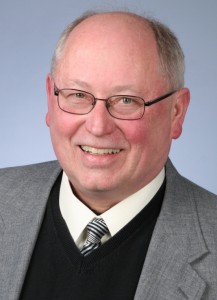About Steve
 Steven (Steve) F. Arnold, Ph.D., has served on a roster of the Lutheran Church for over 50 years. Steve is currently a diaconal minister on the Roster of the Evangelical Lutheran Church in America (ELCA) as a Deacon (Minister of Word and Service). Steve is a member of the Community of Lutheran Deacons which exists within The Lutheran Diaconal Association.
Steven (Steve) F. Arnold, Ph.D., has served on a roster of the Lutheran Church for over 50 years. Steve is currently a diaconal minister on the Roster of the Evangelical Lutheran Church in America (ELCA) as a Deacon (Minister of Word and Service). Steve is a member of the Community of Lutheran Deacons which exists within The Lutheran Diaconal Association.
Before serving as a Deacon in the ELCA, Steve was certified as a Director of Christian Education and as a Lutheran Teacher in The Lutheran Church-Missouri Synod serving the church through parish ministry, teaching at a Lutheran high school, and serving on the faculty (currently emiritus) of Concordia University, St. Paul, MN where he taught parish leadership and lifespan faith formation. Steve currently serves as a Chaplain at a 300 resident facility for senior living that encompasses assisted living, memory care, transitional care, and long term care.
Steve is a Spiritual Director, in the Christian tradition, and is a member of Spiritual Directors International. Steve continues in ongoing personal formation as a spiritual director. Steve’s formation as a Spiritual Director took place through The Christos Center located north of the Twin Cities.
Steve has served as an organizational consultant and also has served on many local, national, and international boards and committees over the years.
Steve is noted as a teacher, retreat leader, speaker, author, chaplain, tour leader, and bridge-builder. His work has included several cross-cultural and international experiences of bringing Christians together from around the world to learn and grow together. Steve is the founder of Pivot Point Ministries.
Steve’s doctoral work and research are in the areas of adult education, with an emphasis on self-directed learning and educational gerontology. Specific applications of these studies have been made to the transitions in faith formation throughout the life span. Special focus in the research has been to equip adults for developing increased responsibility for personal life and development.
His current writing, workshopping, and blogging emphasizes aging boldly. Rather than resist aging, one can learn to embrace the aging process in order to not become a victim. The avoiding of making informed decisions regarding life events means that others make those decisions with or without one’s voice being included.